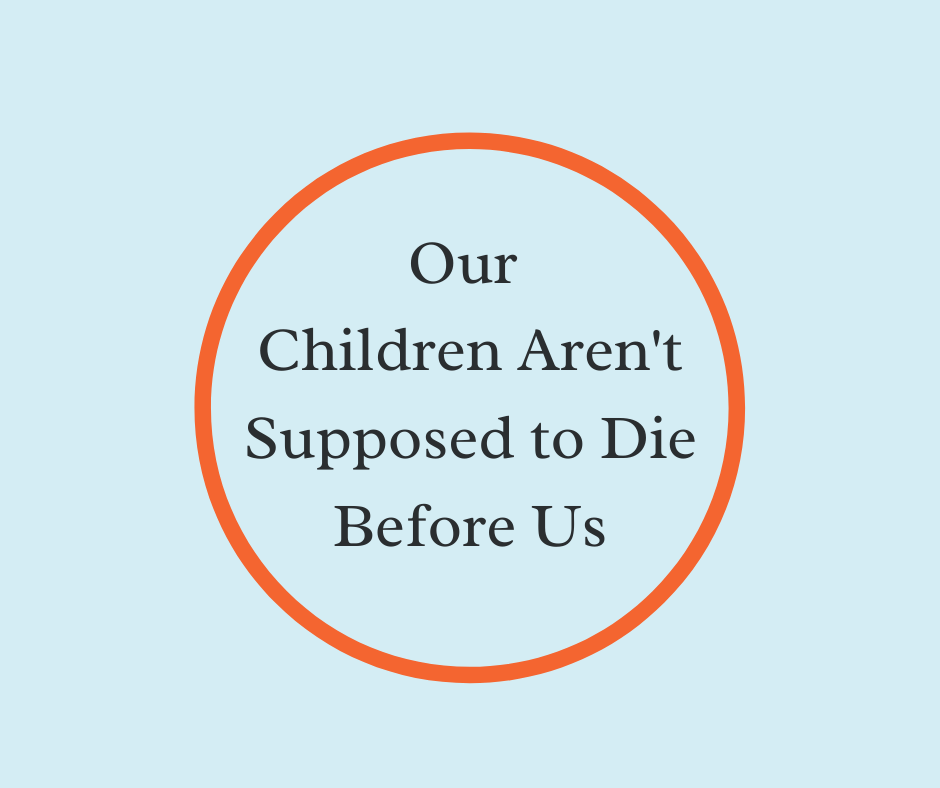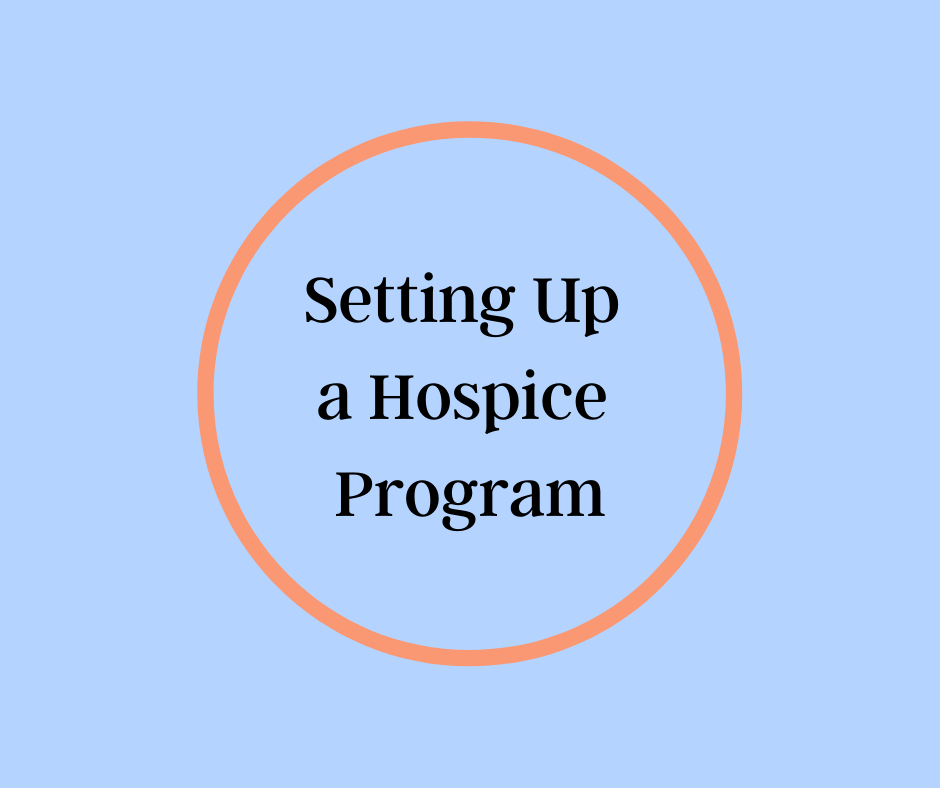Dear Barbara, What is your experience dealing with Alzheimer’s and the dying process. It's hard to know if the disorientation is dying or Alzheimer's. Also she doesn't seem to have the awareness of dying. She's angry, confused. Physically she seems to be in the 1 to 3 months. She has cancer. Her oxygen is 94; her blood pressure was 120/55. She is on hospice.
Dementia isn’t a terminal illness in that it doesn’t have a limited prognosis. It is like dying from old age, it takes longer. Alzheimer’s, or any form of dementia, is difficult to gage as to approaching death. The personality changes and withdraws often over a period of years and sleeping habits are unpredictable as well. The only sign of approaching death that we can use for determining the closeness of death for someone with dementia is to look at their eating habits. When a person is not taking enough calories for maintenance, (under 1200 - 1500 calories) on a continuing basis because of difficulty swallowing, forgetting how to swallow, or choking then they begin entering the dying process.
This is the time we must make the decision of whether we should insert a feeding tube to keep the calorie intake at an appropriate level or not. If the decision is no feeding tube then we can know that death is approaching in a predictable manner. Part of the normal way a person dies is to gradually stop eating over a period of months. When the decision to not insert a feeding tube is made we always offer food (being aware of choking), but we don’t force food. Offer and accept what is eaten or not eaten as part of the normal dying process.
We eat to live, and if the body is not taking in enough calories for maintenance then death will come. In your description you do not mention food so I cannot determine if she has entered the actual dying process. Her blood pressure is good which tells me she is not dying soon. The other factor here is her cancer. The dementia takes precedence over the cancer when it comes to signs of approaching death. Sleeping and withdrawing (which are two of the signs of approaching death from disease that can give us guidance) can occur with dementia years before death approaches. It is only food intake that we can use as a guide when dementia is involved. I am pleased to see she is on Hospice. They can be a support and give you guidance during this uncertain time.
Something More about... Alzheimer's, Cancer and Hospice
I encourage anyone who has a friend or loved one with dementia of any sort to get How Do I Know You? Dementia at the End of Life. The aim of this booklet is to provide information regarding approaching end of life to those people, family and significant others, who are caring and making decisions for someone with dementia.








6 comments
Barbara
Hi Meghin, a person with dementia (Alzheimers) will not actually enter the dying process until they are not eating enough calories to maintain their body. When eating diminishes you can relate their progress in the signs of weeks before death that you find in my booklet Gone From My Sight. Have you read my booklet How Do I Know You? It is about dementia at end of life. I think you will find it helpful as you travel this journey with your father. My blessings are with both of you. Barbara
Hi Meghin, a person with dementia (Alzheimers) will not actually enter the dying process until they are not eating enough calories to maintain their body. When eating diminishes you can relate their progress in the signs of weeks before death that you find in my booklet Gone From My Sight. Have you read my booklet How Do I Know You? It is about dementia at end of life. I think you will find it helpful as you travel this journey with your father. My blessings are with both of you. Barbara
Meghin Lehrkamp
I read your book Gone from my Sight, The Dying Experience. My grandpa has alzheimer’s and has not spoke or know who we his family are for around 4 years. How do I relate this book but with him being completely incompetent? Amazing read. Plan on purchasing your collection. Need to learn how to prepare myself for that dreadful but blissful day coming
I read your book Gone from my Sight, The Dying Experience. My grandpa has alzheimer’s and has not spoke or know who we his family are for around 4 years. How do I relate this book but with him being completely incompetent? Amazing read. Plan on purchasing your collection. Need to learn how to prepare myself for that dreadful but blissful day coming
Wendy Venza
I’m wondering if the patient is showing signs of anger and confusion because she may be having pain from the cancer.
I’m wondering if the patient is showing signs of anger and confusion because she may be having pain from the cancer.
Kevin Haselhorst
Life itself is a terminal illness with a limited prognosis. To single out Alzheimer’s (or any illness) as being separate from human existence and that it’s not terminal distracts family caregivers from accepting death when the time comes. Similarly, Infection/sepsis can be terminal and a blessing if palliative (compassionate) care was better understood by the powers that be.
Life itself is a terminal illness with a limited prognosis. To single out Alzheimer’s (or any illness) as being separate from human existence and that it’s not terminal distracts family caregivers from accepting death when the time comes. Similarly, Infection/sepsis can be terminal and a blessing if palliative (compassionate) care was better understood by the powers that be.
Barbara
Hi Sue, thank you sharing your experience of your husband’s dementia with me. You are certainly right, people can and do die from dementia with no other diseases present. I consider it a terminal illness with death the end result. Why doesn’t the medical profession recognize it as such? I don’t know except that the medical model has a difficult time recognizing that death is a part of living and we all will be unfixable at some time. Oops my frustration is showing! My blessings are with you. Good for you for having the goal of helping with hospice when your 13 months are over. You might find my booklet My Friend, I Care helpful in your grief. Barbara
Hi Sue, thank you sharing your experience of your husband’s dementia with me. You are certainly right, people can and do die from dementia with no other diseases present. I consider it a terminal illness with death the end result. Why doesn’t the medical profession recognize it as such? I don’t know except that the medical model has a difficult time recognizing that death is a part of living and we all will be unfixable at some time. Oops my frustration is showing! My blessings are with you. Good for you for having the goal of helping with hospice when your 13 months are over. You might find my booklet My Friend, I Care helpful in your grief. Barbara
Sue Beabout
My husband died of Alzheimer’s on Jan 25th. I was his caregiver at home for 10 years. It is true that he cycled eating, not eating, hallucinating, sleeping and not sleeping. However, in November, there was a definite change in his eating. He wasn’t as hungry and I had to help him more. He could walk less and was more withdrawn than ever. We still did not know he was end staging until 1 week before. Then he couldn’t eat only a few bites of baby food. I never forced him. He stopped being able to walk and talk and everything. Barbara, I’m I huge fan of yours but did not receive your books from Hospice until 4 days before he died. I would have known for sure earlier that he was end staging. My nurse didnt know either. I took him to the emergency room 6 days before death to make sure. I believe that Alzheimer’s goes further than they just cant swallow. I believe that the brain controls all body functions and my husband reached the point where the disease shut down his organs. ALL of them were failing at once—kidneys, heart, liver. He had no cancer and no heart problems. But he had diabetes and it was controlled. Alzheimer’s is fatal and I am bothered that no one carries it to the point that it CAUSES death! My doctor did not put Alzheimer’s on the death certificate as the primary cause of death which upset me greatly! It was a long struggle caring for him. He died very peacefully at home, on Ativan and morphine the last 3 days. As you say, it was very peaceful! He was with Hospice home care for 10 months. I will be volunteering extensively after my 13 months bereavement. Your book, The Last Act of Living, is amazing and it helped me to heal in my grieving process! Thank you!!
My husband died of Alzheimer’s on Jan 25th. I was his caregiver at home for 10 years. It is true that he cycled eating, not eating, hallucinating, sleeping and not sleeping. However, in November, there was a definite change in his eating. He wasn’t as hungry and I had to help him more. He could walk less and was more withdrawn than ever. We still did not know he was end staging until 1 week before. Then he couldn’t eat only a few bites of baby food. I never forced him. He stopped being able to walk and talk and everything. Barbara, I’m I huge fan of yours but did not receive your books from Hospice until 4 days before he died. I would have known for sure earlier that he was end staging. My nurse didnt know either. I took him to the emergency room 6 days before death to make sure. I believe that Alzheimer’s goes further than they just cant swallow. I believe that the brain controls all body functions and my husband reached the point where the disease shut down his organs. ALL of them were failing at once—kidneys, heart, liver. He had no cancer and no heart problems. But he had diabetes and it was controlled. Alzheimer’s is fatal and I am bothered that no one carries it to the point that it CAUSES death! My doctor did not put Alzheimer’s on the death certificate as the primary cause of death which upset me greatly! It was a long struggle caring for him. He died very peacefully at home, on Ativan and morphine the last 3 days. As you say, it was very peaceful! He was with Hospice home care for 10 months. I will be volunteering extensively after my 13 months bereavement. Your book, The Last Act of Living, is amazing and it helped me to heal in my grieving process! Thank you!!